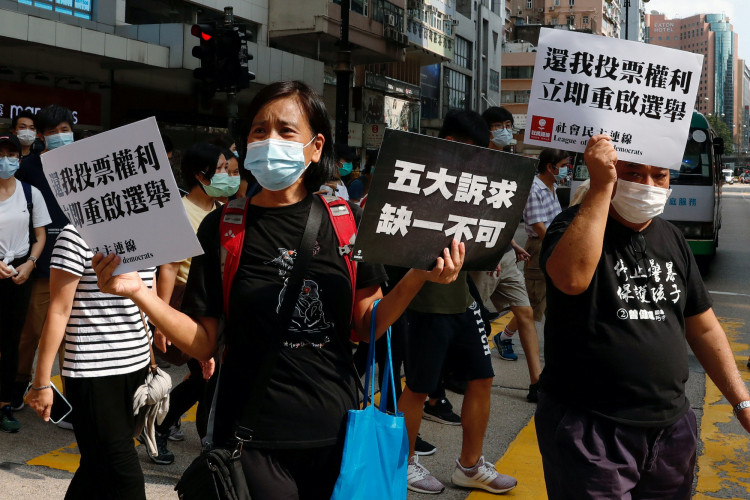Hong Kong's legal communisty is considering the use of virtual reality for the first time to recreate events leading up to the death of 22-year-old university student Chow Tsz-lok during clashes between police and protesters in November 2019, the Coroner's Court announced.
Virtual reality (VR) technology has never been used in the city’s courtrooms, but would enable the inquest’s five-member jury to remotely "visit" the Tseung Kwan O car park where Chow fell during police dispersal operations on the night of November 4.
The one-story fall resulted in serious pelvic and cranial damage. After four days in a coma the Hong Kong University of Science and Technology (HKUST) student, who had been in his second year of a computer science degree, passed away on November 8.
The president of HKUST, Shyy Wei, called for an open and thorough investigation in an open letter to police published a day after Chow passed away.
In the week after Chow’s death, the professor was joined by political leaders and groups around the world in calling for an inquiry into the circumstances surrounding the events of November 4. “His death should immediately be investigated,” Marco Rubo, a U.S. senator from Florida, said in a statement.
The inquest, which is tentatively scheduled to run from November 16 to December 18, will be headed by coroner David Ko Wai-hung, who will hear from more than 60 witnesses, including police, doctors, eyewitnesses and forensic experts.
Virtual reality technology made its first appearance in mainland courtrooms in 2018, when it was used to simulate events leading up to an alleged homicide in Beijing.
Inquiry into Police Actions Said Overdue
The inquest falls only days after the one-year anniversary of the student’s death from cranial injuries that eyewitnesses say police obstructed medical services from immediately attending to.
It took ambulances 19 minutes to reach Chow – seven minutes over the 12-minute waiting time promised to emergency callers, and one responder told the South China Morning Post he heard from the radio communication of firefighters working to resuscitate Chow that an ambulance had been blocked by police.
"This is something that no civilized society should accept, and anyone with a conscience would not accept," said the city's Catholic Bishop Joseph Ha Chi-sing at a prayer service organized by local Christian groups after the incident.
HKUST president Wei demanded answers from the police in his letter, requesting accountability “regarding the cause of the delay in those most critical moments that might have saved a young life.”
A police spokesperson called the accusations “false and groundless” in a statement, noting that ambulances en route to the scene were blocked by buses and private cars.
The role of police officers in the events leading up to Chow’s fall has also come under scrutiny, with some concerned that tear gas being fired in the enclosed space of the car park preempted the incident.
“Reports that Chow Tsz-lok was fleeing tear gas when he fell demonstrate the dangers of indiscriminate deployment of tear gas,” Man-Kei Tam, the director of Amnesty International’s Hong Kong operations, said following news of Chow’s death.
The event "underlines the need for the Hong Kong police to exercise restraint and try to de-escalate clashes with protesters,” Tam added.
If used, VR technology will supplement the scant evidence available to jury members.
Link Reit, owner of the car park where the incident occured, had previously released 10 security footage clips taken the evening of the Chow’s fall. However, his plunge from the first floor was not fully captured by the rotating cameras ,which were also partly blocked by parked vehicles.
Hong Kong coroners have the right to request the investigation report performed by police after a suspicious death and if a coronial inquest is held, all investigation data must be disclosed in open court.
At a press conference held Wednesday outside the coroner's court, police Chief Inspector Mok Tsz-wai issued an appeal for information from people who may have knowledge of the events.





